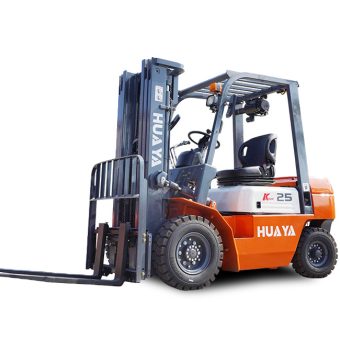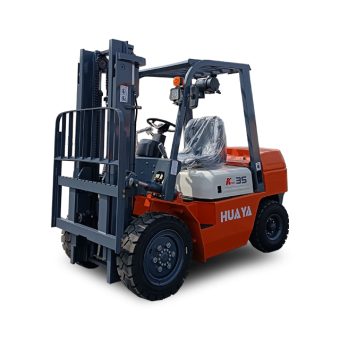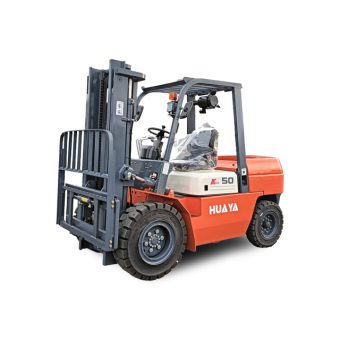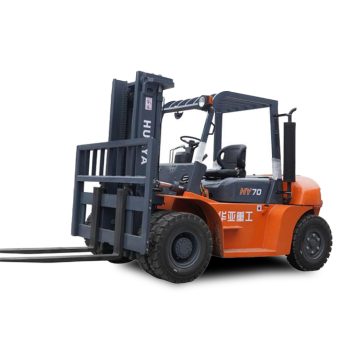
News
When it comes to material handling in warehouses and industrial settings, forklifts play a crucial role. Among the various types of forklifts available, diesel forklifts are known for their power and durability. However, a common question arises: Can you use a diesel forklift indoors? In this article, we will explore the safety considerations, regulations, and best practices associated with using diesel forklifts in indoor environments.
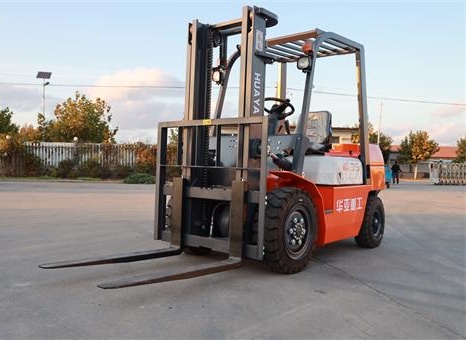
Diesel forklifts are widely used for outdoor applications due to their robust nature and high lifting capacity. They are powered by diesel engines, providing them with the necessary strength to handle heavy loads efficiently. The torque and power offered by diesel engines make them suitable for demanding tasks in construction sites, shipping yards, and other outdoor locations.
Using a diesel forklift indoors requires careful consideration of safety measures. One primary concern is the emission of exhaust gases. Diesel engines produce carbon monoxide and other pollutants, which can be harmful in confined spaces. Adequate ventilation is essential to ensure that the indoor air quality remains safe for operators and other personnel.
To mitigate the risks associated with diesel forklift emissions, proper ventilation systems should be in place. Installing exhaust extraction systems or using forklifts in well-ventilated areas can help minimize exposure to harmful gases. Regular maintenance of the forklift's emission control systems is also crucial to ensure they meet environmental standards.
In many regions, there are specific regulations governing the use of diesel forklifts indoors. Compliance with these regulations is essential to maintain a safe working environment and avoid penalties. Some regulations may include emission standards, noise levels, and safety protocols for indoor forklift operations.
Before using a diesel forklift indoors, it is important to familiarize oneself with local and national regulations. This may involve obtaining permits, and certifications, or implementing specific safety measures. Employers should provide proper training to forklift operators on indoor usage guidelines, emphasizing the importance of adhering to regulations for everyone's well-being.
To ensure the safe operation of diesel forklifts indoors, following best practices is crucial. Here are some key recommendations:
Ventilation: As mentioned earlier, proper ventilation is essential. Ensure that the indoor space has adequate air exchange to prevent the accumulation of harmful emissions.
Regular Maintenance: Conduct regular maintenance checks on the forklift, with a focus on the exhaust system. Timely repairs and replacements can help keep emissions within acceptable limits.
Operator Training: Provide comprehensive training to forklift operators, emphasizing the unique challenges and safety precautions associated with indoor operation. This includes awareness of potential hazards and emergency response procedures.
Monitoring and Compliance: Implement monitoring systems to track emissions and ensure compliance with regulations. Regular audits and assessments can help identify areas for improvement.
Alternative Power Sources: Consider alternative power sources, such as electric or propane forklifts, which produce fewer emissions. Depending on the nature of indoor tasks, these alternatives may offer a more environmentally friendly solution.
While diesel forklifts are traditionally associated with outdoor applications, using them indoors is possible with the right precautions. Safety, compliance with regulations, and adherence to best practices are key factors in ensuring a secure working environment. By implementing proper ventilation, staying informed about regulations, and following best practices, businesses can harness the power of diesel forklifts for indoor material handling while prioritizing the well-being of their workforce.
